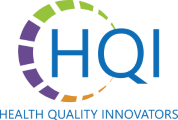For Gerald Family Care P.C., getting patients to set health improvement goals is a difficult barrier, but the practice, which is located in the Washington, D.C. metro area, has been able to actively engage more people they serve with the implementation of practice transformation and services through PreventionLink.
Aside from setting goals, the practice also faces challenges from patients who cannot afford medications to patients and/or their caregivers who do not understand the importance of taking medications on a schedule.
“There are situations where we will prescribe a particular medication and the medication is not on formulary and the patient may not reach out to us and say, ‘Hey, I didn’t get this this prescription’ and wait for three months before coming back,” said Dr. Eric C. Marshall, who has been with the practice since 2001. His health care focus centers on managing population health, including diabetes, hypertension and cholesterol.
The recent implementation of practice transformation working with PreventionLink has helped create small practice workflows to address their patients’ social determinants of health. Also, they have fully integrated the health information exchange services of CRISP and taken advantage of the system’s referral tools.
“Getting the staff involved and creating a workflow in which everyone understands the tools and how to refer our patients to receive the resources they need to improve their health has been a game changer,” Marshall said.
Another big improvement for the practice was to identify a champion within the organization to master patient referrals. Previously, the process was disjointed and often determined by the availability of grants, but through PreventionLink, they tapped a staff member to become a patient referral expert.
Now, patients who meet certain criteria are identified so providers can quickly refer them to receive medication therapy management services. PreventionLink also provides a team through the Healthcare Alliance to reach out to patients using a script to present the program to get patients involved in taking their well-being in their own hands.
“This education of patients is huge because once you have them on board, that’s when you start seeing positive differences in their health care,” Marshall said.
The improvement felt by the practice is not solely reliant on the implementation of new services but reflects the commitment of the staff that serves over 7,000 patients in the D.C. area.
“One thing I would say about Gerald Family Care is that no matter what I bring to them, they are willing to learn and try,” said Judy A. Lichty-Hess, PreventionLink Improvement Consultant. “They just have been willing to participate and willing to listen and willing to transform. They are a very exciting practice to work with.”
About the Practice:
Since 1974, Gerald Family Care P.C. has been a primary care organization specializing in family practice including primary, preventive and managed care services for newborns to the elderly with over 7,000 patients. There are four locations, including three in Prince George’s County and one located in the Washington, D.C. metro area. Currently there are four physicians and two physician assistants including: Dr. Melvin D. Gerald, Dr. Eric C. Marshall, Dr. Sonia Gerald, Dr. Edwin S. Williams, Dr. Josephine King and Courtni Guevara, PA-C.
About PreventionLink:
Health Quality Innovators (HQI) participation in PreventionLink involves a partnership with Prince George’s County Health Department to collaborate with Maryland partners in the counties of Prince George’s, Calvert, Charles and St. Mary’s. The initiative’s goal is to promote the adoption of clinical protocols, implement training and technical assistance of decision-support tools, promote care models and screening tools, assist practices on workflow design, and help practices use technology including telehealth for population health management and referrals.

